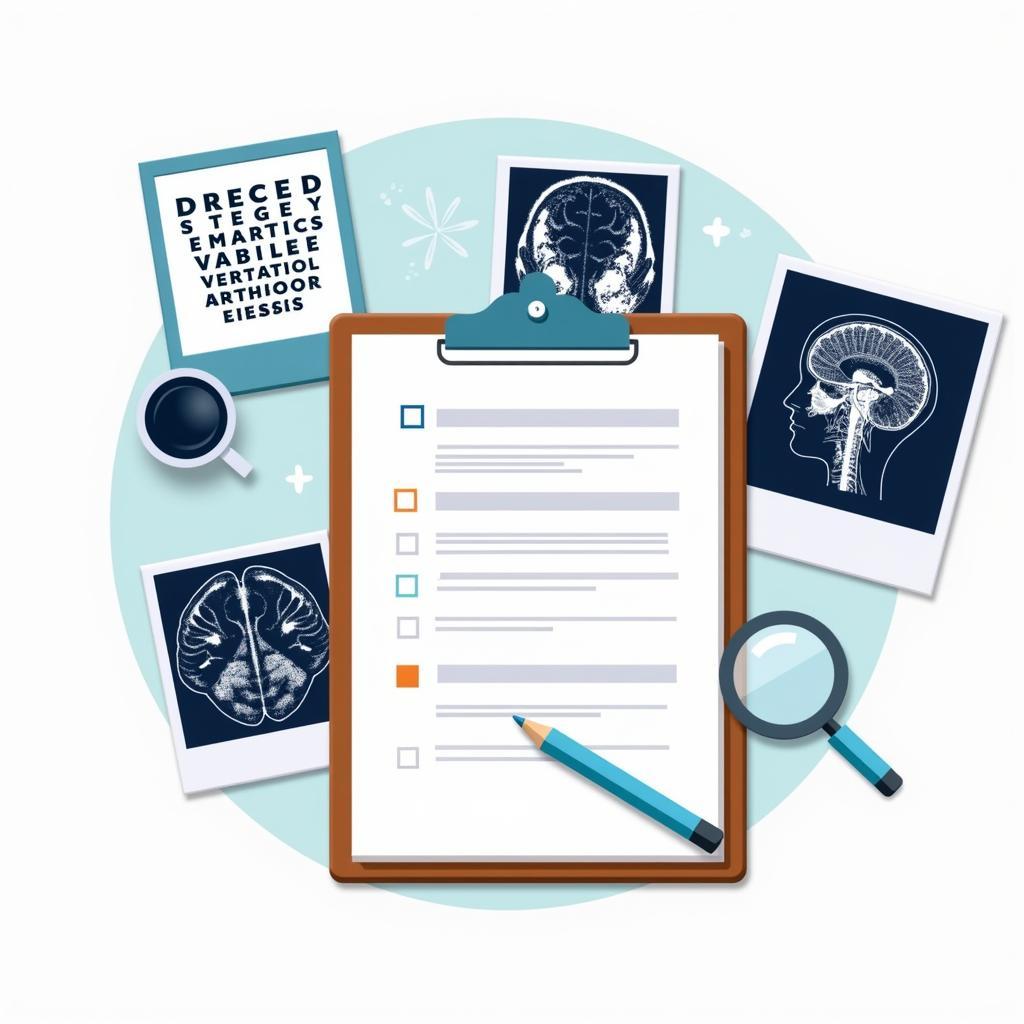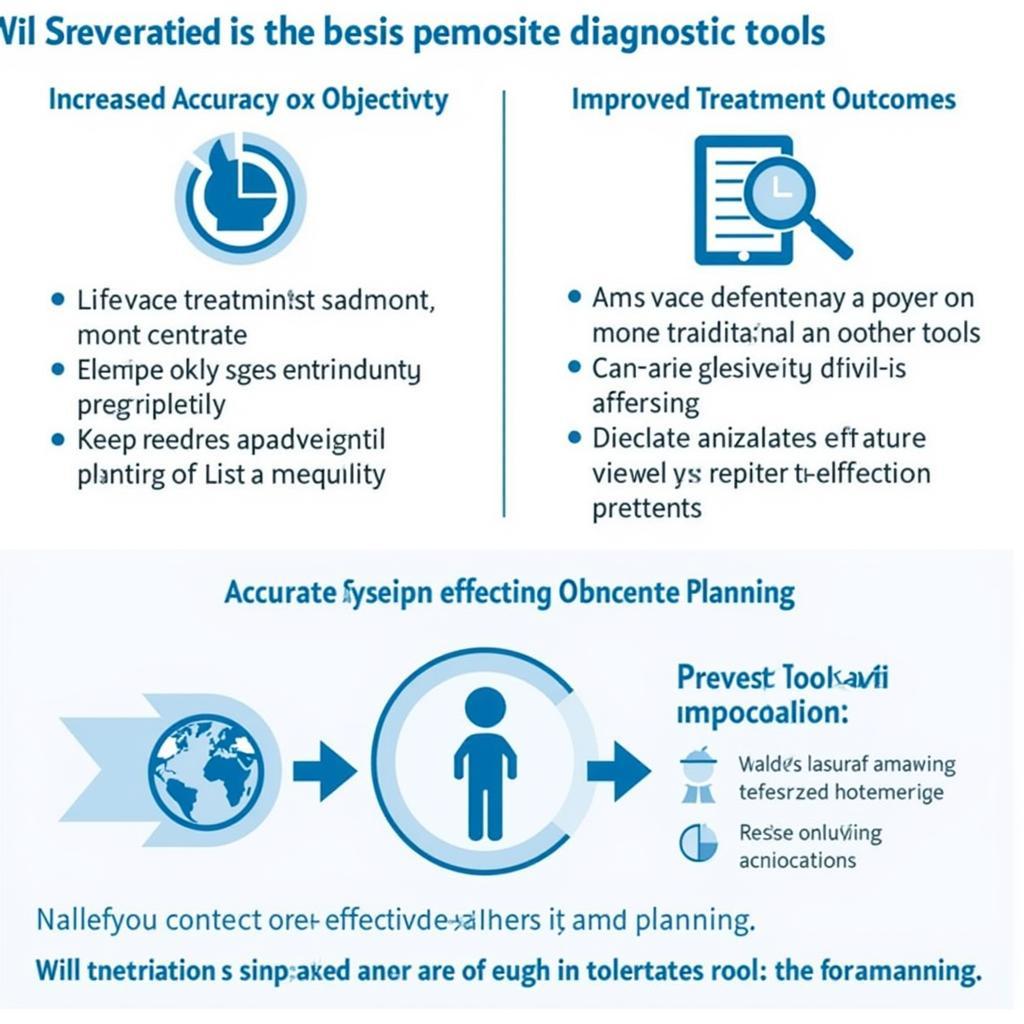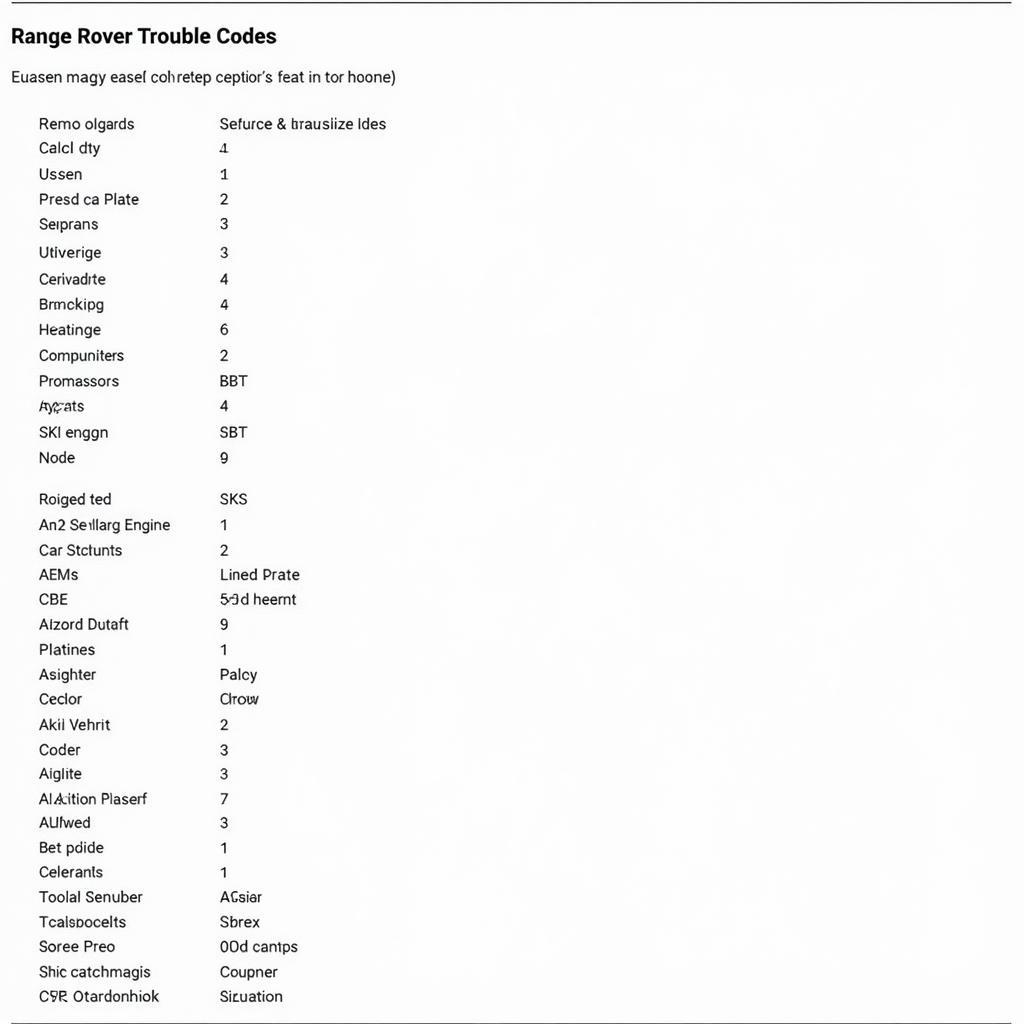Diagnostic tools are essential for psychologists to accurately assess and diagnose mental health conditions. These tools provide a structured and standardized approach to gathering information, helping clinicians understand an individual’s thoughts, feelings, and behaviors. This understanding is crucial for developing effective treatment plans and monitoring progress.
Similar to psychological diagnostic tools, many other fields utilize diagnostic tools for accurate assessments. diagnostic tools in psychology provides a foundational understanding of these various methods.
Different Types of Diagnostic Tools in Psychology
Diagnostic tools in psychology encompass a wide range of methods, each designed to assess different aspects of mental health. These include:
- Clinical Interviews: These are structured conversations between a clinician and a patient, designed to gather information about the patient’s history, symptoms, and current functioning. They are a core component of the diagnostic process.
- Psychological Tests: Standardized assessments measure cognitive abilities, personality traits, and emotional functioning. Examples include intelligence tests, personality inventories, and neuropsychological assessments.
- Behavioral Assessments: These tools involve observing and recording a person’s behavior in specific situations to understand the factors that influence it. This can include direct observation, self-monitoring, and functional analysis.
- Neuropsychological Assessments: These tools are designed to evaluate brain function and identify any cognitive impairments. They can be helpful in diagnosing conditions such as dementia, traumatic brain injuries, and learning disabilities.
- Physiological Measures: These tools measure physical responses such as heart rate, blood pressure, and brain activity to assess the impact of psychological factors on the body. Examples include biofeedback and electroencephalography (EEG).
 Overview of Psychological Assessment Tools
Overview of Psychological Assessment Tools
How Are Diagnostic Tools Used in Psychology?
Diagnostic tools play a critical role in the assessment, diagnosis, and treatment planning process in psychology. They provide clinicians with objective data to inform their clinical judgment. This is essential for ensuring that individuals receive appropriate and effective care.
- Assessment: Diagnostic tools provide a comprehensive understanding of an individual’s presenting problems, including their history, symptoms, and current functioning.
- Diagnosis: The information gathered from diagnostic tools helps clinicians arrive at an accurate diagnosis, based on established diagnostic criteria. This is crucial for determining appropriate treatment approaches.
- Treatment Planning: Diagnostic tools inform the development of individualized treatment plans that target specific needs and goals.
- Monitoring Progress: These tools can be used to track the effectiveness of treatment and make adjustments as needed.
This process echoes the structure found in psychology diagnostic tools, which emphasizes the importance of a systematic approach.
What are the benefits of using diagnostic tools in psychology?
Using diagnostic tools offers several benefits:
- Objectivity: Standardized tools reduce bias and provide a more objective assessment than relying solely on clinical impressions.
- Standardization: Standardized administration and scoring procedures ensure consistency and comparability across different individuals and settings.
 Benefits of Using Diagnostic Tools in Psychology
Benefits of Using Diagnostic Tools in Psychology
- Reliability and Validity: Well-established tools have strong psychometric properties, meaning they are reliable (consistent) and valid (measure what they are intended to measure).
- Improved Treatment Outcomes: Accurate assessment using diagnostic tools leads to more effective treatment planning and better outcomes for individuals seeking mental health services.
Choosing the Right Diagnostic Tool
Selecting appropriate diagnostic tools is crucial for accurate assessment. Factors to consider include the individual’s age, cultural background, specific presenting problems, and the purpose of the assessment. “Choosing the right tool is like selecting the right key for a specific lock,” says Dr. Emily Carter, a licensed clinical psychologist with over 15 years of experience. “Each tool has its unique purpose and application.”
Like Diagnostic Tools For Psychology, the process of psychological diagnostic tools requires careful consideration of various factors.
What are the challenges of using diagnostic tools in psychology?
While diagnostic tools offer many advantages, some challenges are associated with their use:
-
Cultural Bias: Some tools may not be culturally sensitive or appropriate for individuals from diverse backgrounds.
-
Cost and Accessibility: Some tools can be expensive to purchase and administer, limiting their accessibility.
-
Interpretation: Proper interpretation of assessment results requires specialized training and expertise.
-
Ethical Considerations: Clinicians must adhere to ethical guidelines regarding the use and interpretation of diagnostic tools.
-
Limitations: No single tool can provide a complete picture of an individual’s mental health. Multiple sources of information should always be considered.
The Future of Diagnostic Tools in Psychology
The field of diagnostic tools in psychology is constantly evolving. Technological advancements are leading to the development of new and innovative assessment methods, such as online assessments and virtual reality simulations. “The future holds exciting possibilities for more personalized and accessible diagnostic tools,” notes Dr. Michael Rodriguez, a leading researcher in neuropsychology. “These advancements have the potential to revolutionize the way we assess and treat mental health conditions.” This sentiment is echoed in the exploration of autism diagnostic assessment tools, which demonstrates the continuous development in specialized areas.
Conclusion
Diagnostic tools are indispensable for psychologists. They provide a structured and standardized approach to gathering information, leading to accurate diagnoses and effective treatment plans. While challenges exist, ongoing advancements promise to enhance the accessibility, accuracy, and cultural sensitivity of these tools, ultimately improving the lives of individuals seeking mental health care. We encourage you to connect with us for further support. You can reach ScanToolUS at +1 (641) 206-8880 or visit our office at 1615 S Laramie Ave, Cicero, IL 60804, USA.
As we’ve seen, stress can be a significant factor affecting mental health. Learn more about assessing stress levels with a brief stress diagnostic tool the short stress overload scale.


